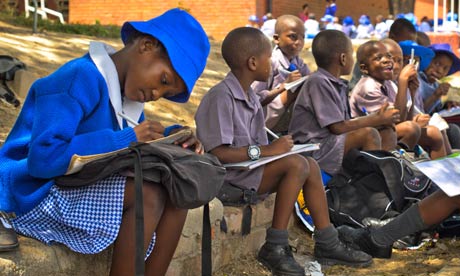
PRIMARY school pupils up to Grade 2 level will now be taught in their mother language, Primary and Secondary Education minister Lazarus Dokora has said.
by NQOBANI NDLOVU
Dokora said his ministry, in conjunction with the Higher and Tertiary Education, Science and Development ministry, would ensure that local languages were developed, beginning at primary school level.
He was responding to a question by Zanu PF legislator Joseph Chinotimba in Parliament on Wednesday on when “our education will be administered in our local languages”.
Chinotimba gave an example of China, where people attained university degrees in their local language.
“. . . we now have the position that has been agreed to by the Cabinet Committee in terms of how four-year-olds up to Grade 2 are to be instructed at school.
They will be instructed in the languages that have been accepted in our Constitution,” Dokora said.
“That is the focus that we are now going to take and those are the steps that we are going to implement. We now have teachers that are advancing themselves in those languages such as Nambya, Tonga, Shangani, Venda and others.”
- Chamisa under fire over US$120K donation
- Mavhunga puts DeMbare into Chibuku quarterfinals
- Pension funds bet on Cabora Bassa oilfields
- Councils defy govt fire tender directive
Keep Reading
The new Constitution recognises 16 languages as official: Ndebele, Chewa,Chibarwe, Kalanga, Khoisan, Nambya, Ndau, Shangaani, sign language, English, Sotho, Tonga, Tswana, Venda, Xhobysa and Shona.
Under section 6(4), the supreme law stipulates that the State must promote and advance the use of all languages used in Zimbabwe, while creating conditions for their development.
However, Ndebele, English and Shona are principally examined at schools, ignoring others.
In 2011, a major milestone was achieved when Tonga was officially tested in the Grade 7 exams for the very first time.
“The advancement in languages is also part of development. It is a process and not an event. Even the English language that we speak in this country proficiently did not start as the English language that we have known,” Dokora said.
“It is dynamic and it borrows from other languages and it was perfected.
My ministry is not alone in doing that. We work hand in glove with the Ministry of Higher and Tertiary Education, Science and Technology Development so that there is development in our languages.”










